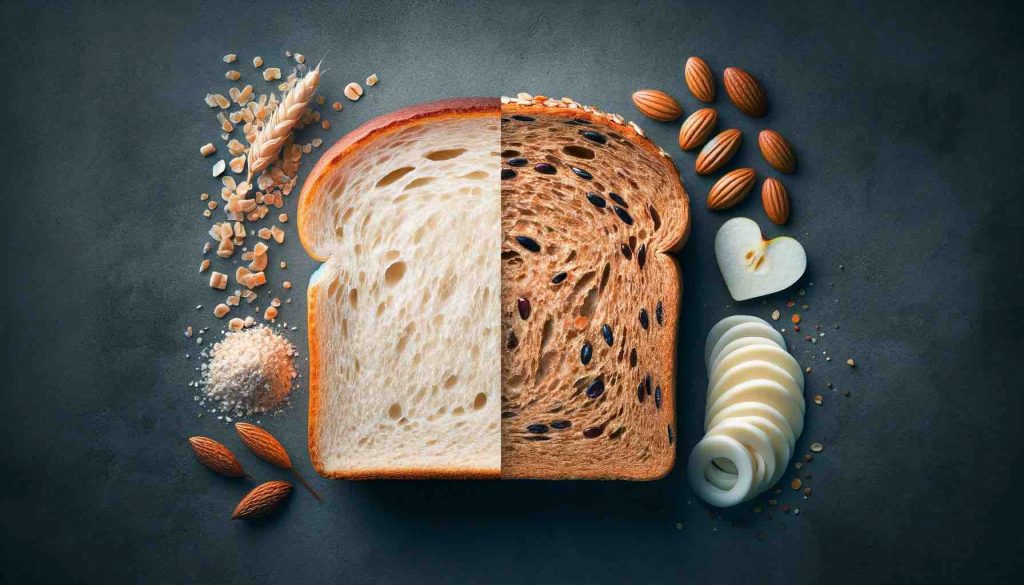
Introduction:
Have you ever found yourself standing in the grocery aisle, scrutinizing the label of your favorite snack, wondering about the ‘fats’ it contains? You’re not alone. In a world where ‘fat’ often carries a negative connotation, it’s time we unravel the truth about dietary fats and their impact on our health.
Gone are the days when all fats were demonized, and lumped together as the villains in our diet narrative. Today, science tells a more nuanced story. Fats, it turns out, are not just necessary; they’re beneficial, playing a pivotal role in everything from brain health to energy levels. But here’s the catch – not all fats are created equal.
In this journey through the world of fats, we’ll decode the mysteries of saturated, unsaturated, and trans fats. We’ll explore how they affect our bodies, bust some pervasive fat myths, and provide practical tips to help you make fat your friend, not your foe. Whether you’re a health enthusiast or just curious about your diet, this post is your guide to understanding and embracing the good fats while sidestepping the bad.
Ready to change the way you think about fats? Let’s dive in!
Diving Deeper: The Intriguing World of Dietary Fats
Welcome to the intricate tapestry of dietary fats, where every thread plays a unique role in the grand design of our health. Let’s embark on a detailed exploration, unraveling the complexities of these crucial nutrients.
The Champions of Health: Unsaturated Fats
Imagine unsaturated fats as the superheroes of your diet, donning capes made of heart-protective powers. These fats, primarily found in plant sources like olive oil, nuts, and avocados, are liquid at room temperature. They’re split into two heroic teams:
- Monounsaturated Fats (MUFAs): These are the peacekeepers, maintaining harmony in your cholesterol levels. They’re the stars in foods like almonds and olive oil, known for their heart-health-boosting prowess.
- Polyunsaturated Fats (PUFAs): These include your Omega-3 and Omega-6 fatty acids, playing pivotal roles in brain function and overall cellular health. Found in fish, flaxseeds, and walnuts, they’re like the guardians of your body’s galaxy, fighting inflammation and protecting your heart.
The Undercover Villains: Trans Fats
In the twisting plot of dietary fats, trans fats are the disguised villains. Once heralded as a healthier alternative, these fats, hiding in processed foods and baked goods, have been exposed for their true colors. They’re like double agents, increasing bad cholesterol while decreasing the good, plotting against your heart health. The key to unmasking these villains lies in reading labels – look out for terms like ‘hydrogenated’ or ‘partially hydrogenated oils’.
The Ambiguous Characters: Saturated Fats
Saturated fats, found in animal products like butter and cheese, have long been painted as the bad guys. But recent studies suggest a more complex character arc. While they can raise bad cholesterol, they aren’t as villainous as once thought when consumed in moderation. Think of them as the complex characters in our fat story, requiring a nuanced approach.
The Plot Twist: Balancing Your Fat Intake
The secret to mastering your fat intake doesn’t lie in cutting out a character but in understanding their roles and balancing their presence. It’s about creating a symphony where MUFAs and PUFAs have more solos while keeping saturated and trans fats in the background chorus.
Stay tuned as we unveil practical strategies to harmonize these fats in your daily diet, turning your meals into a masterpiece of health and flavor.
Redefining Fats: Smart Choices for Every Meal
Transforming your diet with healthy fats isn’t just about olive oil or cutting fats entirely; it’s about smarter choices that align with a holistic approach to nutrition.
Exploring the World of Edible Oils
- Diverse Oils for Diverse Diets: Venture beyond olive oil. Try avocado oil for high-heat cooking, or flavor-rich sesame oil for Asian dishes. Walnut oil can add a nutty taste to salads, while canola oil is a versatile choice for various cooking needs.
- Regional Favorites: Embrace oils popular in your region. For instance, mustard oil in Indian cooking or grapeseed oil in Mediterranean recipes can offer both flavor and health benefits.
Rethinking Dairy: Full-Fat and Fermentation
- Full-Fat Dairy: Instead of automatically opting for low-fat versions, consider the benefits of full-fat dairy. The fats in full-fat yogurt and cheese can enhance satiety and nutrient absorption. Plus, they often contain fewer additives compared to their low-fat counterparts.
- Fermented Dairy Delights: Incorporate fermented dairy like kefir or traditional yogurts, which offer probiotics along with healthy fats.
Mindful Meat and Poultry Choices
- Lean Yet Flavorful: Choose leaner cuts but balance them with flavorful, healthy fats in cooking. For example, cook chicken in a small amount of coconut oil or dress lean cuts of meat with herb-infused oils.
Educated Choices in Processed Foods
- Savvy Shopping: Focus on whole, unprocessed foods. When buying packaged items, be vigilant about ingredient lists to avoid hidden trans fats.
The Ultimate Rule: Variety and Moderation
Embracing a variety of fats from different sources is key. Each type of fat offers unique benefits, and variety ensures a well-rounded intake of these benefits. Remember, moderation is essential in all dietary choices, ensuring balance and health.
In our next section, we’ll dive into debunking myths about dietary fats, providing you with facts to make informed choices.
Dispelling Myths: The Truth About Fats Uncovered
In our journey through the world of dietary fats, it’s crucial to separate fact from fiction. Let’s debunk some common myths and shed light on the realities of fat consumption.
Myth 1: “Eating Fat Makes You Fat”
Reality: It’s not about eating fat but the type and amount. Healthy fats, when consumed in moderation, can actually aid in weight management by enhancing satiety.
Myth 2: “All Saturated Fats Are Bad”
Reality: The story of saturated fats is complex. While they should be consumed in moderation, not all saturated fats are equal. Natural sources like coconut oil may offer health benefits when used judiciously in your diet.
Myth 3: “Low-Fat Products Are Healthier”
Reality: Low-fat doesn’t always mean healthy. Often, when fat is removed, sugar or other additives are used to compensate for flavor, which can be detrimental to your health.
Myth 4: “Vegetable Oils Are Always the Best Choice”
Reality: While vegetable oils can be healthy, the method of processing and the type of vegetable oil matter. Cold-pressed oils retain more nutrients, whereas heavily processed oils can lose beneficial properties.
Myth 5: “Cholesterol in Foods Is the Main Cause of High Cholesterol”
Reality: Dietary cholesterol has less impact on blood cholesterol than previously thought. Factors like genetics, overall diet, and lifestyle play a more significant role.
By understanding these truths, you can make more informed choices about incorporating fats into your diet. Remember, knowledge is power – especially when it comes to navigating the world of dietary fats.
Stay tuned for our next segment, where we’ll provide a day-to-day guide to integrating healthy fats into your meals seamlessly.
Fusing Healthy Fats into International Cuisine: Creative Recipes
Now, let’s dive into some unique, globally-inspired recipes that artfully blend healthy fats into everyday cooking, offering a delicious way to enjoy diverse cuisines while benefiting from the goodness of these fats.
1. Moroccan Chickpea and Olive Oil Tagine
Infuse the heart-healthy properties of olive oil into a classic Moroccan tagine, rich with spices, chickpeas, and a rainbow of vegetables.
2. Japanese Avocado and Tofu Sushi Rolls
Combine the creamy texture of avocado with nutrient-rich tofu in a sushi roll, embracing the Omega-3 benefits in a traditional Japanese favorite.
3. Brazilian Nuts and Chia Seed Açaí Bowl
A refreshing açaí bowl topped with an assortment of Brazilian nuts and a sprinkle of chia seeds, bringing together a powerhouse of healthy fats and antioxidants.
4. Mediterranean Grilled Mackerel with Walnut Gremolata
Enjoy the rich Omega-3 content of mackerel complemented by a crunchy walnut gremolata, embodying the essence of Mediterranean cuisine.
5. Indian Coconut Milk and Almond Curry
Aromatic spices blended with coconut milk and almonds create a rich, flavorful curry, showcasing how traditional Indian cuisine can be both indulgent and healthy.
These recipes are not only a testament to the versatility of healthy fats but also a celebration of global culinary traditions, proving that health-conscious eating can be a delightful and diverse experience.
Concluding Thoughts: Embracing Fats in a Global Culinary Context
As we wrap up our exploration of dietary fats, it’s clear that these nutrients are not just a dietary requirement but a gateway to culinary diversity and innovation. From the sunny Mediterranean coasts to the vibrant markets of Asia, healthy fats are integral to some of the world’s most beloved cuisines.
Remember, the key to benefiting from dietary fats lies in understanding their diverse roles, choosing wisely, and enjoying them in balance. By embracing a variety of fats from different cultural cuisines, we not only enrich our diets but also our appreciation for global culinary traditions.
Let this journey through the world of fats inspire you to experiment with new flavors and ingredients, making each meal an opportunity for both health and pleasure.
10 FAQs and Answers for the Blog Post
- What are the health benefits of incorporating unsaturated fats into my diet? Unsaturated fats, found in foods like olive oil and nuts, can improve heart health, lower bad cholesterol levels, and reduce inflammation.
- Can saturated fats be part of a healthy diet? Yes, when consumed in moderation. Saturated fats, like those in coconut oil and dairy, can be included as part of a balanced diet.
- How can I include healthy fats in my vegetarian diet? Vegetarian diets can be rich in healthy fats from avocados, nuts, seeds, and plant-based oils.
- Are trans fats harmful, and how can I avoid them? Trans fats, often found in processed foods, are harmful as they raise bad cholesterol. Reading labels and avoiding hydrogenated oils can help avoid them.
- Can eating fat help in weight management? Healthy fats, when included as part of a balanced diet, can enhance satiety and help in weight management.
- What are some global sources of healthy fats? Global sources include olive oil (Mediterranean), coconut milk (Asian cuisines), and avocados (Central and South American cuisines).
- Is butter a good source of fat? In moderation, grass-fed butter can be a source of Omega-3 and vitamins but should be balanced with other fat sources.
- How do healthy fats impact brain health? Fats like Omega-3 fatty acids are crucial for brain health, aiding in cognitive function and reducing the risk of dementia.
- What are some easy ways to include healthy fats in my daily meals? Incorporating nuts in salads, using avocado as a spread, and cooking with olive or canola oil are easy ways to include healthy fats.
- Are low-fat dairy products healthier? Not necessarily. Full-fat dairy products can be healthier as they are less processed and more satisfying, reducing the need for added sugars or additives.
Blog Tags for the Post
dietary fats, healthy eating, global cuisine, unsaturated fats, heart health, brain health, weight management, vegetarian diet, omega-3 fatty acids, culinary diversity, cooking tips, nutrition myths, balanced diet, food culture














